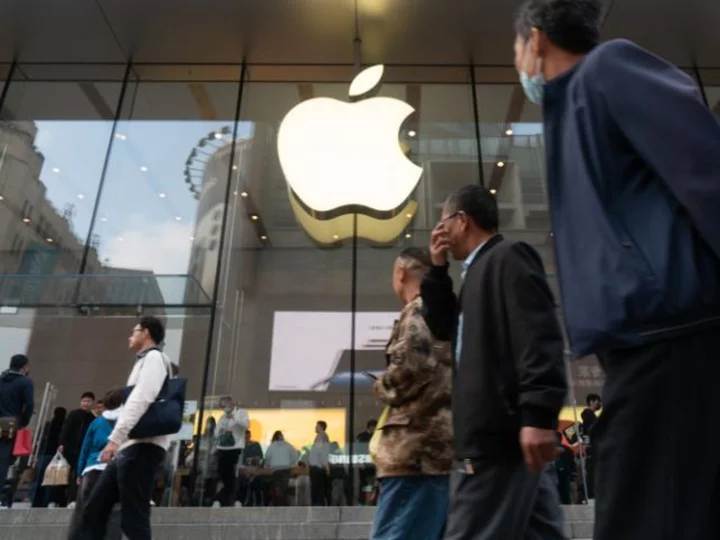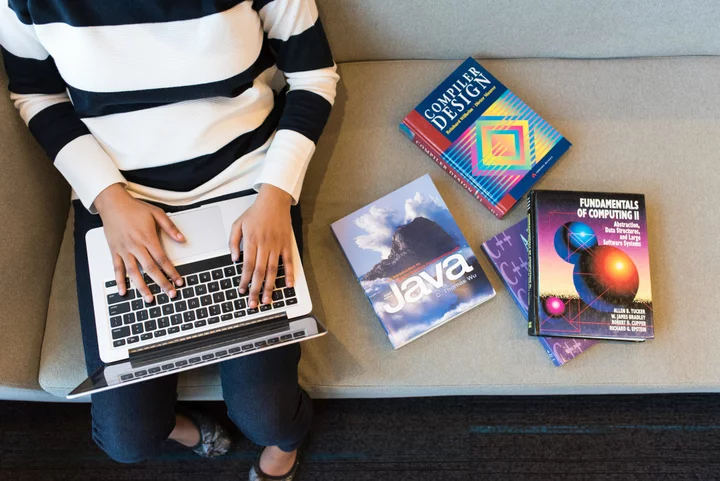China's economy is in trouble. That's bad news for US stocks, and potentially for your portfolio.
What's happening: Chinese consumer spending, factory production and investment in long-term assets (such as property, machinery or other goods) all slowed further in July from a year ago, according to the country's National Bureau of Statistics.
Youth unemployment in the world's second largest economy has repeatedly hit record highs. Earlier this week Beijing decided to suspend the release of that monthly data altogether.
Tensions between the US and China, meanwhile, have been on the rise as the world's two largest economies clash over issues ranging from trade policy and technology, to Russia's invasion of Ukraine.
Last week, President Joe Biden announced an executive order limiting US investments in advanced technology industries in China. The order prompted fund managers to worry about how they should be investing in the country.
Separately, a Congressional committee announced earlier this month that it is investigating BlackRock, the world's largest asset manager, and MSCI, one of the biggest providers of index funds, to determine whether they are investing in Chinese companies blacklisted by the US government for security and human rights issues.
Why it matters: "For most of the last two decades, China's economic growth has been a major driver of the global economy," said Alex Etra, a strategist at data analytics firm Exante. That means that if China's economy slows down, global economic growth slows down.
"When global economic growth slows down, that tends to be negative US equities. And some of that has to do with direct exposure of US companies' sales in China and with China being a major consumer of commodities."
Even companies that aren't selling directly to China are impacted by what happens, he said. ExxonMobil may not be doing too much business with China, said Etra, but if Chinese growth slows, that means oil prices go down. They've done precisely that in the last week or so, sliding about 5%.
Where it will hurt: US-based companies doing business in China stand to lose if the economy there continues on a downward trajectory. Companies like Apple, Intel, Ford and Tesla all have large manufacturing ties to the country. Others, like Starbucks and Nike, rely on Chinese consumers.
Earlier this year, Bank of America compiled a list of the S&P 500 companies with the highest exposure to China.
Topping the list was Las Vegas Sands. The casino company derives 68% of its sales from China and has seen its stock price fall nearly 10% so far over the last 30 days.
Qualcomm, a semiconductor manufacturer, has a 67% exposure rate to China. Shares of its stock notched their longest losing streak in more than four years on Wednesday and are down nearly 11% over the last 30-day period.
Tesla, Intel, Nvidia, Wynn Resorts and MGM Resorts were also among the 25 S&P 500 companies with the most exposure to China.
Funds are already retreating: US private equity and venture capital investments in the country hit an eight-year low last year and continue to fall, according to data from PitchBook.
Large hedge funds like Michael Burry's Scion Asset Management, Moore Capital Management, Coatue, D1 Capital and Tiger Global also cut their exposure to Chinese companies in the second quarter of 2023, according to recent Securities and Exchange Commission filings.
The world lost 3.5 million millionaires in 2022
Last year was a bad year for the 1%. Inflation and interest rates rose while markets plummeted, leaving some of the ultra-wealthy not quite as wealthy as they once were. As a result, total household wealth declined for the first time since the 2008 global financial crisis, reports my colleague Allison Morrow.
The grand total of all the private wealth in the world fell 2.4% to $454.4 trillion last year, according to the annual Credit Suisse and UBS global wealth report. Much of that was due to losses in stock and bond markets, which disproportionately affect wealthier people.
That's not necessarily a bad thing: Global median wealth, a more meaningful indicator of how the typical person is faring, actually rose 3% in 2022, the report found.
But the drain on wealth at the top means the world now has 3.5 million fewer millionaires than it did in 2021. Millionaires, however, still find themselves in good company — there are about 60 million of them worldwide.
Aldi is buying 400 Winn-Dixie and Harveys supermarkets
The German supermarket giant Aldi has already made its mark on much of the United States, and now it's moving south.
Aldi is acquiring Winn-Dixie and other grocery stores in the Southeast in a move to increase its presence in the region, the company announced Wednesday.
Aldi will be converting a "significant amount" of Winn-Dixie and Harveys stores to its bare-bones store format over the coming years, Aldi USA CEO Jason Hart said to CNN, though some of the nearly 400 Winn-Dixie locations Aldi is acquiring will keep the familiar red-and-white Winn-Dixie branding and traditional store layout.
It's part of Aldi's long term plan to expand across the US — it previously announced would open 120 new stores with a goal of 2,400 stores by the end of 2024.
"The Southeast is a big part of our growth initiative across the country," Hart said. "In fact, it [was] a focus of our growth initiative even before this acquisition — so it was the perfect kind of confluence of factors."
Hart added that the acquisition could also serve as a real estate leasing opportunity for Aldi, as the stores require only about half the square footage of traditional grocery stores, reports my colleague Ramishah Maruf.









